COP 26: Government leaders must commit to boosting cycling levels to reduce carbon emissions and reach global climate goals quickly and effectively

Update: this global campaign helped achieve a last-minute inclusion of active travel in the official COP26 Transport Declaration
The coalition of 350 organizations led by the European Cyclists' Federation achieved a significant policy breakthrough at COP26. Their global campaign helped achieve a last-minute inclusion of active travel in the official COP26 Transport Declaration on 10 November, fundamentally changing the document's scope from purely electric vehicles to a broader transport transformation.
Policy Recognition: The final paragraph of the declaration was updated to read: "We recognise that alongside the shift to zero emission vehicles, a sustainable future for road transport will require wider system transformation, including support for active travel, public and shared transport". This marked the first time walking and cycling were officially recognized in a major COP transport declaration.
Diplomatic Foundation: While the reference to active travel and public transport is a far cry from what's needed to cut transport emissions and reach climate goals, it's an important recognition that will be built upon at the COP27 in Sharm El-Sheikh, Egypt. This gave cycling advocates official standing in future climate negotiations.
Policy Leverage: The inclusion broke the electric vehicle monopoly on climate transport discussions and established active travel as a legitimate, immediate climate solution alongside longer-term technological fixes. This created a policy precedent that cycling organizations could reference in national and local government discussions worldwide.
Movement Building: The coalition's open letter was first published on 2 November and called on governments at COP26 to boost global cycling levels to cut transport emissions quickly and on a massive scale. Initially signed by over 60 organisations, the letter ultimately clocked 350 signatories from all over the world, demonstrating unprecedented global coordination in cycling advocacy.
The achievement was transforming cycling from an overlooked transport mode to an officially recognized climate solution at the highest level of international diplomacy.
With thanks to Bikesy for the cycling policy analysis
Letter to governments at COP26:
World leaders must commit to boosting cycling levels to reduce carbon emissions and reach global climate goals quickly and effectively
The world needs much more cycling if we are to combat climate change. Without quicker and more determined action by governments worldwide to cut transport carbon emissions, we will be dooming present and future generations to a world that is more hostile and much less inhabitable. This is why we, the undersigned 350 organisations, strongly appeal to all governments and leaders attending the 26th United Nations Climate Change Conference (COP26) in Glasgow to commit to significantly increasing the number of people who cycle in their countries. Governments can do this by building more high-quality cycling infrastructure, integrating cycling with public transport, improving road safety and implementing policies that encourage people and businesses to replace automobile trips with bicycle trips and other modes like walking and public transport. Promoting and enabling active mobility must be a cornerstone of global, national and local strategies to meet net-zero carbon targets. Worldwide, transportation is responsible for 24% of direct CO₂ emissions from fuel combustion. Road vehicles account for nearly three quarters of transport CO₂ emissions, and these numbers are not decreasing. Aside from the unsustainable levels of CO₂ emissions that are ruining Earth’s climate, road vehicles are polluting our air at unprecedented levels, killing an estimated seven million people worldwide every year. The Intergovernmental Panel on Climate Change (IPCC) “Global Warming of 1.5 °C” special report has identified cycling as a pathway to ensuring a safe and sustainable world for everyone, both now and in the future. Bicycle use produces zero emissions and cycling delivers far-reaching positive socioeconomic impacts in addition to reduced pollution. Cycling represents one of humanity’s greatest hopes for a shift towards a zero-carbon future. New research shows that life-cycle CO₂ emissions drop by 14% per additional cycling trip and by 62% for each avoided car trip. Switching from a car to a bicycle saves 150g of CO₂ per kilometre. E-cargo bikes cut carbon emissions by 90% compared with diesel vans. Swapping the car in cities for walking and cycling even just one day a week can reduce your carbon footprint by about half a tonne of CO₂ over a year. Building synergies with other travel modes such as public transport can critically enhance this potential. Our world is on fire. We must urgently leverage the solutions that cycling offers by radically scaling up its use. What we need now is for governments to politically and financially commit to more, safer and integrated cycling that is equitable for everyone living in our countries, cities and regions. We urge all governments and leaders at COP26 to:
-
Declare commitments to significantly boost cycling levels at home. This can be done by:
-
Promoting cycling in all its forms, including cycling tourism, sports cycling, bike sharing, riding to work or school and for exercising
-
Recognising cycling as a climate solution, establishing a clear link between how an increase in bicycle trips and a decrease in private car trips reduce CO₂ emissions
-
Creating and financing national cycling strategies and collecting data on cycling to know where improvements in infrastructure and usage can be made
-
Focusing investments on building safe and high-quality cycling infrastructure and in incentives for communities historically marginalised from cycling
-
Providing direct incentives for people and businesses to switch from automobiles to bicycles for more of their daily trips
-
Building synergies with public transport and foster combined mobility solutions for a multimodal ecosystem capable of covering all user needs without relying on a private car
-
Collectively commit to achieving a global target of higher cycling levels. More cycling in a handful of countries will not be enough to reduce global CO₂ emissions. All countries must contribute, and these efforts must be tracked at the UN level.
There is no conceivable way for governments to reduce CO₂ emissions quickly enough to avoid the worst of the climate crisis without significantly more cycling. Cycling is one of the best solutions we already have to ensure our planet is habitable for all generations to come.
Signatories
The above joint letter is signed by the following 350 organisations:
-

European Cyclists' Federation (ECF)
-

Institute for Transportation and Development Policy (ITDP)
-

PeopleForBikes
-

Union Cycliste Internationale (UCI)
-

International Association of Public Transport (UITP)
-
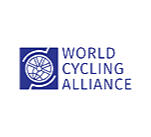
World Cycling Alliance (WCA)
-

2030-sekretariatet
-

30 Días en Bici AC
-

40 BIKE – asociación y comunidad de ciclistas
-

8 80 Cities
-

#MejorCiudad
-

A Contramano - Asamblea Ciclista de Sevilla
-

ABAE – Associação Bandeira Azul da Europa
-

ABİT (Adana Bisiklet Topluluğu Spor Kulübü)
-

Ankara Bisiklet Ve Doğa Sporları Derneği ABİDOSD
-

Active San Gabriel Valley
-

Adevaratii VeloPrieteni Romania
-

Associação Blumenauense pró-Ciclovias Blumenau
-

Associação Nacional das Indústrias de Duas Rodas, Ferragens, Mobiliário e Afins (ABIMOTA)
-

Associação dos Ciclistas de Petrópolis (Acipe)
-

Asociación de Ciclistas del Perú
-

actif-trafiC – umverkehR
-

Active Towns
-

Allgemeiner Deutscher Fahrrad- Club (ADFC)
-

AF3V – Association française pour le développement des Véloroutes et Voies Vertes
-

Agartala Cycloholics Foundation
-

Alanya Outdoor Sports Club
-

Aliança Bike – Brazilian National Bicycle Industry Association
-

Asociación de Marcas y Bicicletas de España (AMBE)
-

Associação Metropolitana de Ciclistas do Recife (Ameciclo)
-

Amobici – Associação Mobilidade por Bicicleta e Modos Sustentáveis
-

Associação Natureza Portugal em parceria com a WWF
-

Argentina En Bici
-

Ark2030
-

Aromeiazero Institute
-

Asociación Ciclistas Urbanos
-

Asociación Civil Sustentar
-

AsPIC Romania
-

Australian Walking and Cycling Conference
-

Bartin Pedaldaslar Cycling Club
-

Bate Saua Sa Priceapa Iapa
-

Cycling community #ZaVelo Vyazma
-

Bicycling Empowerment Network Namibia
-

Better Ealing Streets
-

Better Streets for Havering
-

BiciBus: Al Trabajo en Bici
-

BicikLO – Planinsko Biciklističko Društvo
-

Biciklo.me
-

Bicimixtles
-

Biciñan Colectivo de Movilidad Sostenible y Urbanismo
-

Bicitekas
-

BiciVerde AC
-

Bicivilizados
-

Bicycle Association of Great Britain
-

Bicycle Network Australia
-

Bicycle Nova Scotia
-

BikeCommute@USM
-

BikeTour Research Group, Federal University of Santa Catarina, Brazil
-

Bike Action
-

Bike Adelaide
-

Bike Is Best
-

Bike Ottawa
-

Bicycle South Australia
-

Bike to Work Indonesia
-

Bike Walk Alameda
-

Asociatia Bike Works
-

Bisikletli Yaşam Platformu (BYP)
-

Bisikletli Ulaşım Derneği – BİSUDER
-

Boroondara Bicycle Users Group
-

Bicycle Queensland
-

Braga Ciclável
-

Bricycles – Brighton & Hove Cycling Campaign
-

Bridgwater Cycling Campaign
-

Bridgwater Cycling Charter
-

Bristol Cycling Campaign
-

BUGEP – Bisikletli Ulaşımı Geliştirme Platformu
-

BYCS
-

BYCS India Foundation
-

Camcycle, the Cambridge Cycling Campaign
-

CAMINA – Centro de Estudios de Movilidad Peatonal
-

Campaign for Grasmere to Ambleside Cycleway
-

Campo Aberto – associação de defesa do ambiente
-

CAN – Cycling Action Network (New Zealand)
-

Zambia Road Safety Trust
-

Cargo Bike Movement
-

Compagnia dei MeglioInsieme ApS - Torino Italy
-

Center for Environment (Centar za životnu sredinu)
-

Centro Para la Sostenibilidad Urbana
-

Czech Cyclists' Federation
-

Council for Active Mobility
-

changing cities
-

Chesterfield Cycle Campaign
-

Association Choisir Le Vélo
-
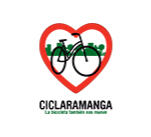
Ciclaramanga, la bicicleta también nos mueve
-

Ciclaveiro – Associação pela Mobilidade Urbana em Bicicleta
-

Ciclistas Membros do Ciclo Comitê Paulista
-

Cicloamigos
-

Ciclocidade – São Paulo Urban Cyclists Association
-

CICLODA – Associação Oficina da Ciclomobilidade
-

Cities for Cycling – Network for Cycling in Greek Cities
-

City and Mobilities Institute
-

Ciudad Activa
-

Clean Cities Campaign
-

Climate Action Santa Monica
-

CCN – BICYCLE TOURISM CLUB “NAPOCA”
-

Clubul Sportiv Tibiscus – Tibiscus Sporting Club
-

Cluster Mobilité Active & Durable
-

Colegio de Arquitectos del Perú
-

Coletivo ParáCiclo
-

ConBici - Coordinadora en defensa de la bici
-

Confederation of the European (CONEBI) Bicycle Industry
-

Stichting Cycling out of Poverty
-

Cycling out of Poverty Belgium
-

Cycling out of Poverty Kenya
-

Cycling out of Poverty Uganda
-

Copenhagen Bike Community
-

Critical Mass Kampala
-

CycHull
-

Cyclamaine
-
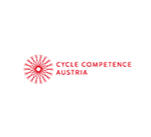
Cycle Competence Austria
-

Cycle Kingston Inc.
-

Cycle Lewes
-

Cycle North Cheshire
-

Cycle Stars
-

Cycle Wellington
-

Cycling Embassy Botswana
-

Cycling Embassy of Denmark
-

Cycling Embassy of Japan
-

Cycling Escape of Pieria
-

Cycling Family Partnership community/Дугуйтай гэр бүл ББН
-

Cycling For Health
-

Cycling Industries Europe
-

Cycling Instructors Branch IWGB
-

Cycling Scotland
-

Cycling UK
-
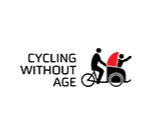
Cycling Without Age
-

Cyclist.ie
-

Cyclists of Tirana
-

CyclotransEurope
-

Cyclox
-

Cykelcentrum – Swedish Cycling Research Center
-

Cykelfrämjandet
-

Cyklokoalícia
-

Cyklistforbundet – Danish Cyclists’ Federation
-

Danish Cycling Tourism
-

Day One
-

Biedrība «Drošās ielas» – Safe Streets
-

Dundee Cycling Forum
-

Dutch Cycling Embassy
-

VšĮ Dviračių Kultūra – Bicycle Culture
-

Ebikebrum
-

Edubici Perú
-

Estonian Urban Cyclists Union
-

Ekopolis Foundation
-

Ely Cycling Campaign
-

EnBici
-

EnBiciA
-

Energy Efficiency and Environment Protection Association (ENVERÇEVKO)
-

Environmental Transport Association (ETA)
-

Europafietsers
-
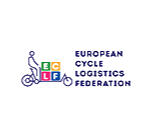
European Cycle Logistics Federation (ECLF)
-

Evoluir Oeiras
-

Exeter Cycling Campaign
-

Fare City
-

Portuguese Cycling Federation
-

Federação Portuguesa de Cicloturismo e Utilizadores de Bicicleta
-

Romanian Cyclists' Federation
-

Fédération Française de Cyclisme
-

Royal Moroccan Cycling Federation
-

Federació d'Entitats per la Mobilitat amb Bicicleta de Catalunya (FEM BICI)
-

Federazione Italiana Ambiente e Bicicletta (FIAB)
-

FIAB FROSINONE-Su2Wheels
-

Fietsersbond Belgium
-

Fietsersbond Netherlands
-

Fietsersbond Tienen
-

Finnish Cyclists' Federation
-

Formosa Lohas Cycling Association
-

Forth Environment Link (FEL)
-

FRE!LAUF DIY Bike-Camp
-

Lastenradl München e.V.
-

Fédération Française des Usagers de la Bicyclette (FUB)
-

Fundación Educación Vial
-

Fundación Metro y Medio
-

Galway Cycling Campaign
-

GREEN CYCLING
-

Greater Eugene Area Riders
-

Glasgow Eco Trust
-

GRACQ – Les Cyclistes Quotidiens
-

Grampian Cycle Partnership
-

Greasy Chain Charitable Trust
-

Great African Cycling Safari
-

Greenpeace
-

Gualeguaychú en Bici
-

Green Revolution Asociatia
-

Guwahati Active Mobility Forum
-

HaicuBicla
-

Happy Hyderabad
-

Hatay Cycling Sports Club Association (HABİD)
-

GO4FUN Romania
-

GoBike – Strathclyde Cycle Campaign
-

Havering Cyclists
-

Hellenic Urban Cycling Federation
-

Hong Kong Cycling Alliance
-

Hungarian Cyclists' Club
-
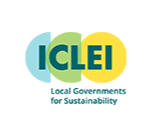
ICLEI – Local Governments for Sustainability
-

International Cargo Bike Festival
-

TJ Ioan 1209
-

ISGlobal, Barcelona – Barcelona Institute for Global Health
-

International Mountain Bicycling Association Europe (IMBA Europe)
-

International Mountain Bicycling Association (IMBA Italia)
-

Integrados LA
-

Italian Climate Network
-

Kalapie, Hiriko Txirrindularien Elkartea
-

Kingston Area Pedestrian and Cycle Campaign
-

Kidical Mass Bath
-

Kolem na kole
-

KOLKATA CYCLE SAMAJ
-

La Maison du Vélo Lyon
-

La Velostazione Venezia
-

Laboratorio de Cambio Social, Chile
-

LACBC – Los Angeles County Bicycle Coalition
-

Latvian Cyclists Union
-

League of American Bicyclists
-

Circolo Legambiente “Il Cigno” di Frosinone APS
-

Les Boîtes à Vélo – France
-

Russian cycling advocacy project Let's bike it!
-

Clean Air Action Group (Hungary)
-

Lithuanian Cyclists' Community
-

Landssamtök hjólreiðamanna – Icelandic Cyclists Federation
-

Birmingham Living Streets Group
-

Ljubljanska kolesarska mreža – Ljubljana Cyclists' Network
-

Rowerowa Łódź
-

London Cycling Campaign
-

Mobiel 21
-

MagelangBIKE
-

Maidstone Cycle Campaign Forum
-

Mám rád cyklistiku
-

Masa Crítica Kanata
-

Merseyside Cycling Campaign
-

Mersin Biking Traveler's Association
-

Metz à Vélo
-

Milton Cycling Campaign
-

Minsk Cycling Community
-

Mobilitatis Omni, Institute for sustainable infrastructure development and mobility of all
-

Mobilize Brasil
-

Moreland BUG (Bicycle User Group)
-

MOVE Malta
-
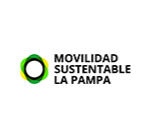
Movilidad Sustentable La Pampa
-

Associação pela Mobilidade Urbana em Bicicleta (MUBi)
-

Mulica
-

Mums for Lungs
-

Napa County Bicycle Coalition
-

Newcastle Cycling Campaign
-

NUMO – New Urban Mobility Alliance
-

Club Escuela de Ciclismo Orgullo Paisa
-

Osez le Vélo
-

Parkways for People
-

Pasadena Complete Streets Coalition
-

Physical Activity Through Sustainable Transport Approaches (PASTA) Antwerpen
-

Pedal for a Change
-

Pedal on Parliament
-

Pedalling For A Bright Future
-

Place au Vélo – Laval
-

PlanèteVtt Angers
-

Plymouth Cycling Campaign
-

POLIS
-

Polish Association of Cycling Instructors
-

Pro Velo (Belgium)
-

Pro Velo Switzerland
-

ProVelo.lu
-

Public Transport Users Association (PTUA)
-

Pueblo Bicicletero Movilidad y Sostenibilidad, A. C.
-

udruženje "Putevi Sokola" – association "Falcon Roads"
-

Radlobby Österreich
-

Radlogistik Verband Deutschland e.V.
-

Rails-to-Trails Conservancy
-

Black Ravens Lisbon Cycling Club
-

Riders’ Rights
-

Menton & Riviera Autrement
-

Road Danger Reduction Forum (UK)
-

Rota
-

Royal Spanish Cycling Federation
-

Rue de l’Avenir
-

Sacramento Area Bicycle Advocates
-

Salvaiciclisti Roma
-

Santa Fe En Bici
-

Santa Monica Safe Streets Alliance
-

Santa Monica Spoke
-

Shropshire Cycle Hub
-

Siam Cycling Campaign
-

Colectivo SiCLas
-

Silicon Valley Bicycle Coalition
-

Sindikat Biciklista – Croatian Cyclists Union
-

Slovenian Cyclists' Network
-

Sonoma County Bicycle Coalition
-

Spokes, the Lothian Cycle Campaign
-

Spokes Canterbury
-

Srce Velebita – Heart of Velebit
-

Stonnington Bicycle User Group
-

Streets Alive Yarra
-

Streets For All
-
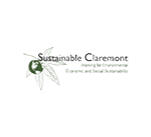
Sustainable Claremont
-
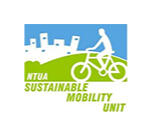
Sustainable Mobility Unit (National Technical University of Athens)
-
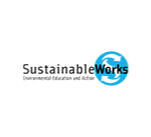
Sustainable Works
-
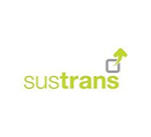
Sustrans
-

Syklistforeningen – Norwegian Cyclists’ Association
-

Svensk Cykling – Swedish Cycling
-

Svenska Cykelstäder – Swedish Cycling Cities
-

Taiwan Urban Bicycle Alliance
-

Transport Action Network
-

Taunton Area Cycling Campaign
-

The Bike Station
-
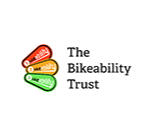
The Bikeability Trust
-
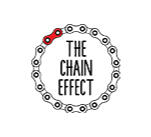
The Chain Effect
-

The Racing Collective
-

Cork Transport and Mobility Forum
-

Transporte Ativo (TA)
-

Trinity College Dublin
-

Tüm Bisiklet Dernekleri Federasyonu (TUBIDEF) – The Federation of all Cycling Associations
-

Tunbridge Wells Bicycle Users’ Group (TWBug)
-

Urban Bike Revolution
-

UCB – Brazilian Cyclists' Union
-

Ulice za bicikliste (UZB) – Streets for bicyclists
-

Union Européenne de Cyclisme
-

Unley Bicycle User Group
-

Urban Environmentalists
-

Vá de Bike
-

Eskişehir Bisiklet Derneği (Vel ESBİD)
-

Vélo & Territoires
-

Vélo Canada Bikes
-

Velo Cruces
-

Vélo Mondial
-

Vélo Québec
-

VÉLO-CITÉ
-

VéloCITÉ pays de Montbéliard
-

Vem de Bike
-

Verbund Service und Fahrrad e.V.
-

Versta cycling club
-

Fundación Visión Cero
-

VOY EN BICI & Banco Mundial de Bicicletas
-

VUS Vélo Urbain Sherbrooke
-

Walk Ride Bath
-

We Ride Australia
-

World Bicycle Relief
-

Fahrrad.Selbsthilfe.Werkstatt im WUK
-

Yarra Bicycle Users Group
-

York Cycle Campaign
-

ZERO – Associação Sistema Terrestre Sustentável
-

Znajkraj
-

Bundesverband Zukunft Fahrrad
-

.
-

.
The COP26 cycling letter is closed for signatures
Thank you for your support in this hugely successful campaign, which saw 350 civil society organisations from all over the world sign the letter to governments at COP26. This global campaign helped achieve a last-minute inclusion of active travel in the official COP26 Transport Declaration on 10 November. The letter is closed for signatures.
Toolkit
Want to advocate for more cycling? We have prepared a free toolkit which includes ready-to-use graphics featuring the key messages from our letter adressed to governments and leaders attending COP26.

Thank you
This page is designed and managed by ECF. If you would like to learn more about our work, please visit our website. For media requests, please contact ECF's Press Officer
© European Cyclists' Federation. All rights reserved.
Latest News
Europe sizzles under severe heatwave sparking health alerts and wildfire warnings
Parts of Europe are sweltering under intense heat, with authorities warning of rising wildfire risks and severe health impacts linked to high temperatures.
Sunken warships from WWI and WWII are ticking pollution time bombs at the bottom of our oceans
As rusting war-era ships decay on the seafloor, their toxic cargoes pose an urgent but often overlooked environmental risk.
More European consumers are buying frozen food to reduce waste, survey shows
As well as saving time and money, frozen food can contribute to a more sustainable food system.
A solidarity success and a climate failure: Thousands of Tuvaluans seek new visa to Australia
The treaty is seen as a hopeful model for climate mobility, but is the result of “a deeply saddening” reality for Tuvalu.
New index reveals countries in the ‘red zone’ of climate vulnerability - including two in Europe
It provides a more realistic picture of risk, and could help direct support to countries “living one disaster away from crisis.”